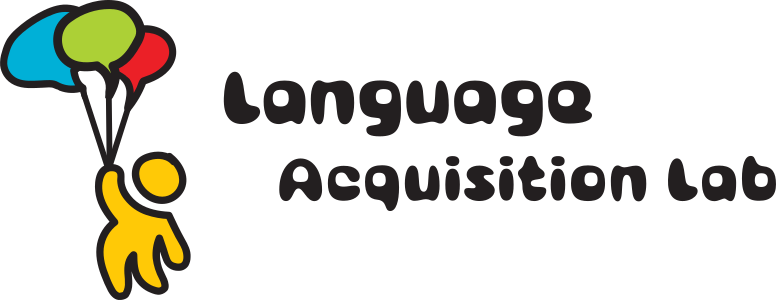Frequently Asked Questions:
+ How do I sign up?
Please click here to fill out an information sheet. We will contact you to set up an appointment!
+ Are your studies online?
Right now, all of our studies are being conducted online over video-conferencing platforms such as Zoom. Each experiment will be run by a researcher. A graduate student, faculty member or lab manager may observe for training purposes, in which case they will be muted and have their video off.
+ What are studies like?
Our studies are created as short, child-friendly games, played one-on-one with an experienced researcher. Currently, all of our studies are online and conducted over video-conferencing platforms such as Zoom. They involve child-friendly pictures or video clips, and we ask children to help the researcher or a character with a task. The participant may be given remote control of the researcher's screen, in order to click on parts of the scene. In games where clicking is necessary, parents may need to assist their children if their children are too young to operate a mouse. Children tend to enjoy playing these games (after all, we design them to be fun). When we run experiments in person, they may involve interacting with puppets and toys or looking at and answering questions about a series of child-friendly pictures or video-clips presented on an iPad or laptop, or on a computer screen with non-invasive eye-tracking equipment.
+ How long is a typical study?
Each Study takes about 15 minutes, but some may be longer or shorter. We ask parents to schedule 30-minute timeslots with us to allow for setup and calibration.
+ What does my child get for participating?
We send each participant a certificate commemorating their participation and thanking them for their help. Each of our participants is an Assistant Scientist! We regret that we are unable to offer compensation for participation at this time.
+ What kind of device can I use to participate?
The best device for this process is a laptop or desktop computer. It does not matter which operating system you use, as long as it is able to run the video-conferencing software. Chromebooks are incompatible with some of our studies, as are iPads. If you would like to use an iPad or Chromebook to participate, please let our researchers know in advance so we can run a study with you that will accommodate the differences between devices.
+ What are the benefits of participating in this research?
We depend on the participation of parents and children from the community to learn more about this important aspect of a child's growth. Understanding the process of language acquisition helps scientists advance better theories about language and cognition. This in turn has an impact on the development of more sensitive diagnostics for language disorders, better curriculum design, and a better understanding of how human language works.
+ My kids are learning a different language at home. Can I still sign up?
Most of our studies are in English and designed specifically with learners of English in mind. This may mean that children who speak a language other than English at home won’t be eligible for our studies until or unless they learn English too. However, which languages we study depends to some extent on the immediate interests of our researchers. So, on occasion, we may also recruit speakers of languages other than English. Parents of bilingual children and non-English-speaking children are welcome to sign up.
+ My kids are bilingual or multilingual. Can I still sign up?
Bilingual and multilingual children are welcome to participate in our research.
+ What if my child is not typically developing?
All of our studies right now fall under the category of "basic research", which means that we seek to establish baselines for typical language acquisition that have not yet been studied. It is not always clear when a child is very young whether their development is typical or not; we target children who are "believed to be normally developing". If you have received a diagnosis of abnormal development or you have reason (such as another underlying developmental condition) to believe that your child's cognitive or language development may be impaired, unfortunately we cannot run studies with your child. Studies on atypical language development rely on basic research to contrast their findings with; as such, our research may indirectly benefit this research, but we do not have any studies targeting atypically developing populations at this time.
+ Who can sign up a child to participate?
Only a parent (biological or adoptive) or legal guardian can legally consent to a child's participation in our research. A legal guardian is someone who is responsible for the child according to the law, not someone who has been given permission by the parents to care for the child temporarily. Unfortunately, this excludes grandparents, nannies/daycare workers, and other caretakers.
Grandparents and nannies would be welcome to be the person to sit with the child while the child participates in our study, but in that case, legal permission from a parent or legal guardian for the child's participation must be arranged and obtained by researchers first.
+ How can I get in contact with the lab?
You can reach us by phone at (617) 902-0608 or via email at childlanguage@mit.edu.
